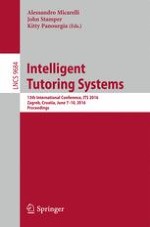2016 | OriginalPaper | Buchkapitel
Motivational Gamification Strategies Rooted in Self-Determination Theory for Social Adaptive E-Learning
verfasst von : Lei Shi, Alexandra I. Cristea
Erschienen in: Intelligent Tutoring Systems
Aktivieren Sie unsere intelligente Suche, um passende Fachinhalte oder Patente zu finden.
Wählen Sie Textabschnitte aus um mit Künstlicher Intelligenz passenden Patente zu finden. powered by
Markieren Sie Textabschnitte, um KI-gestützt weitere passende Inhalte zu finden. powered by
